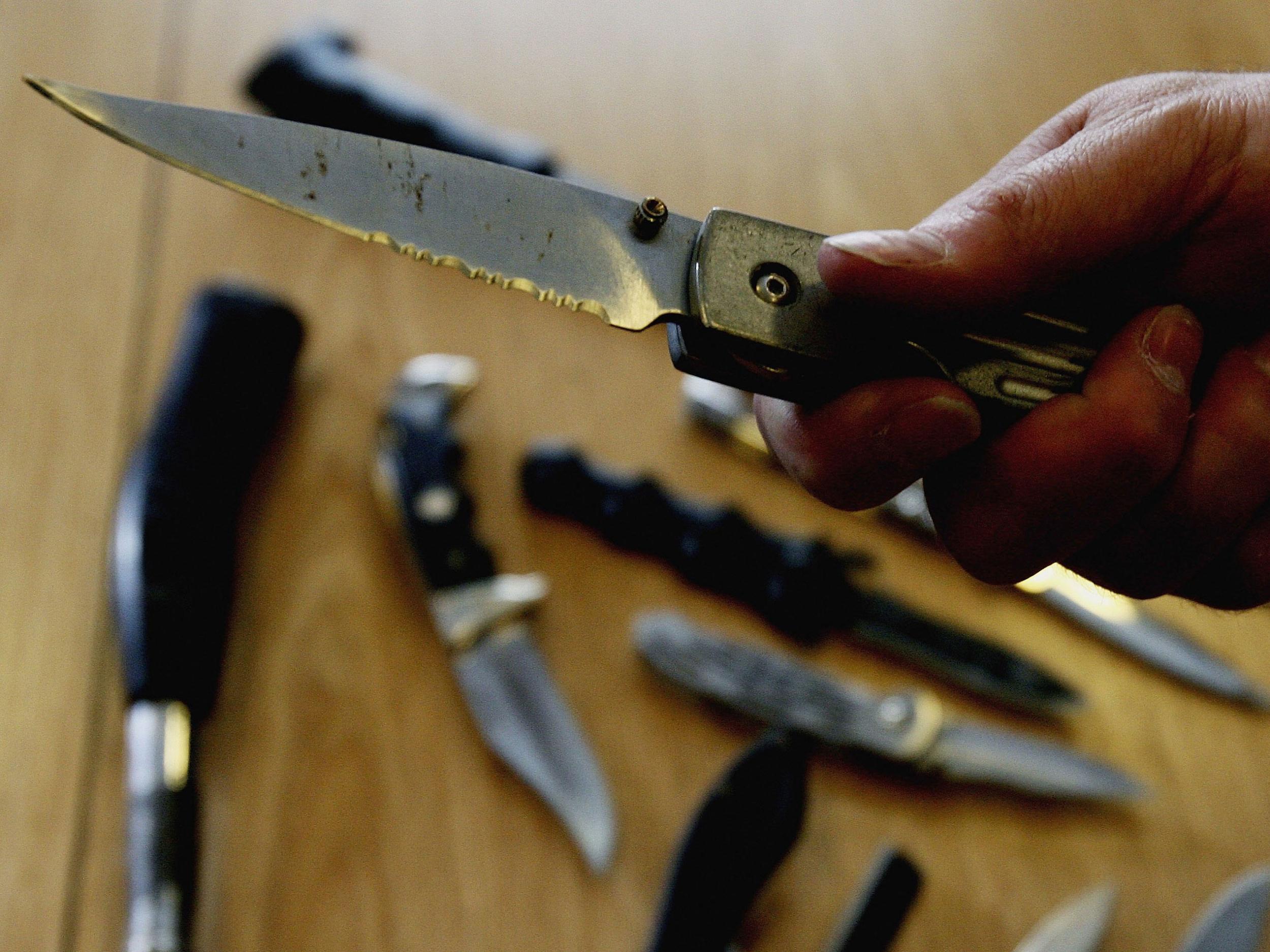NHS and councils to have legal duty to help prevent violent crime, government announces
Public bodies will be required to share data and intelligence in bid to tackle ‘senseless bloodshed’, says Sajid Javid

NHS trusts and local authorities are to be legally required to help tackle serious violence such as knife crime, the home secretary has announced.
Police forces, health bodies and councils will have a duty to share data, intelligence and knowledge in a bid to address the root causes of “senseless bloodshed”, Sajid Javid said.
It is hoped the approach will enable targeted early interventions to prevent violence and save lives.
“Violent crime is a disease that is plaguing our communities and taking too many young lives,” the home secretary said.
“It’s crucial that we all work together to understand what causes violent crime in the first place, so we can intervene early and prevent this senseless bloodshed.
“I’m confident that a public health approach and a new legal requirement that make public agencies work together will create real, lasting long-term change.”
Organisations, rather than individuals, will be held accountable for the meeting the “public health duty” after concerns were raised by teaching unions and NHS staff. Inspections will be used to ensure bodies comply.
The Home Office stressed the new legal requirements were “designed to build on existing responsibilities and local arrangements” and would not mean “burdening” teachers, nurses or other frontline public workers with “police work”.
The government is also to amend the Crime and Disorder Act to ensure serious violence is an explicit priority for community safety partnerships, which include local police, fire and probation services. The partnerships will be required to have a strategy in place to tackle violence, the Home Office said.
Theresa May, the prime minister, added: “We all have a role to play to tackle serious violence and stop the needless loss of young lives.
“Alongside tough law enforcement we also have to stop children being drawn into crime in the first place.”
Javed Khan, chief executive of the children’s charity Barnardo’s, said the announcement was “a step in the right direction” towards tackling the “epidemic” of youth violence.
He added: “Local agencies like schools, health services, police, local authorities and youth offending teams must work together to keep children safe. However, it’s vital public bodies receive the resource they need to carry out these responsibilities effectively.”
Knife crime surged to record levels last year, with police in England and Wales recording almost 44,500 offences involving knives or sharp weapons
More than 22,000 offences of possessing or making threats with blades or offensive weapons resulted in a conviction or caution in 2018-19.
One in five of the culprits was aged between 10 and 17, the figures from the Ministry of Justice revealed.
The children’s commissioner for England, Anne Longfield, said it was “right that knife crime is seen as a public health issue”.
But she added: “While this is a step forward, it will not be enough on its own. There must be a commitment from the government and new prime minister to drive this through and put the right resources behind it.
“It must not be allowed to wither away after any change at No 10 or the Home Office.”
Patricia Marquis, the Royal College of Nursing director for England, said requiring public bodies to work together to try to prevent violent crime “sounds like a sensible approach”.
She added: “Our worry when the home secretary first announced these plans back in April was that they proposed a legal duty for individual nurses to try to identify patients at risk of becoming victims of knife crime – which we felt was placing too great a burden on nursing staff, who are already struggling with severe workforce shortages in trying to provide care.
“We are glad Mr Javid has listened to our concerns and amended his plans.”
The home secretary said the increase in youth violence was linked to “the changes in drug markets we are seeing worldwide”.
This year, amid a slew of fatal stabbings, the government granted an extra £100m for police in the areas worst affected by knife crime and gave officers beefed-up stop and search powers.
Subscribe to Independent Premium to bookmark this article
Want to bookmark your favourite articles and stories to read or reference later? Start your Independent Premium subscription today.

Join our commenting forum
Join thought-provoking conversations, follow other Independent readers and see their replies